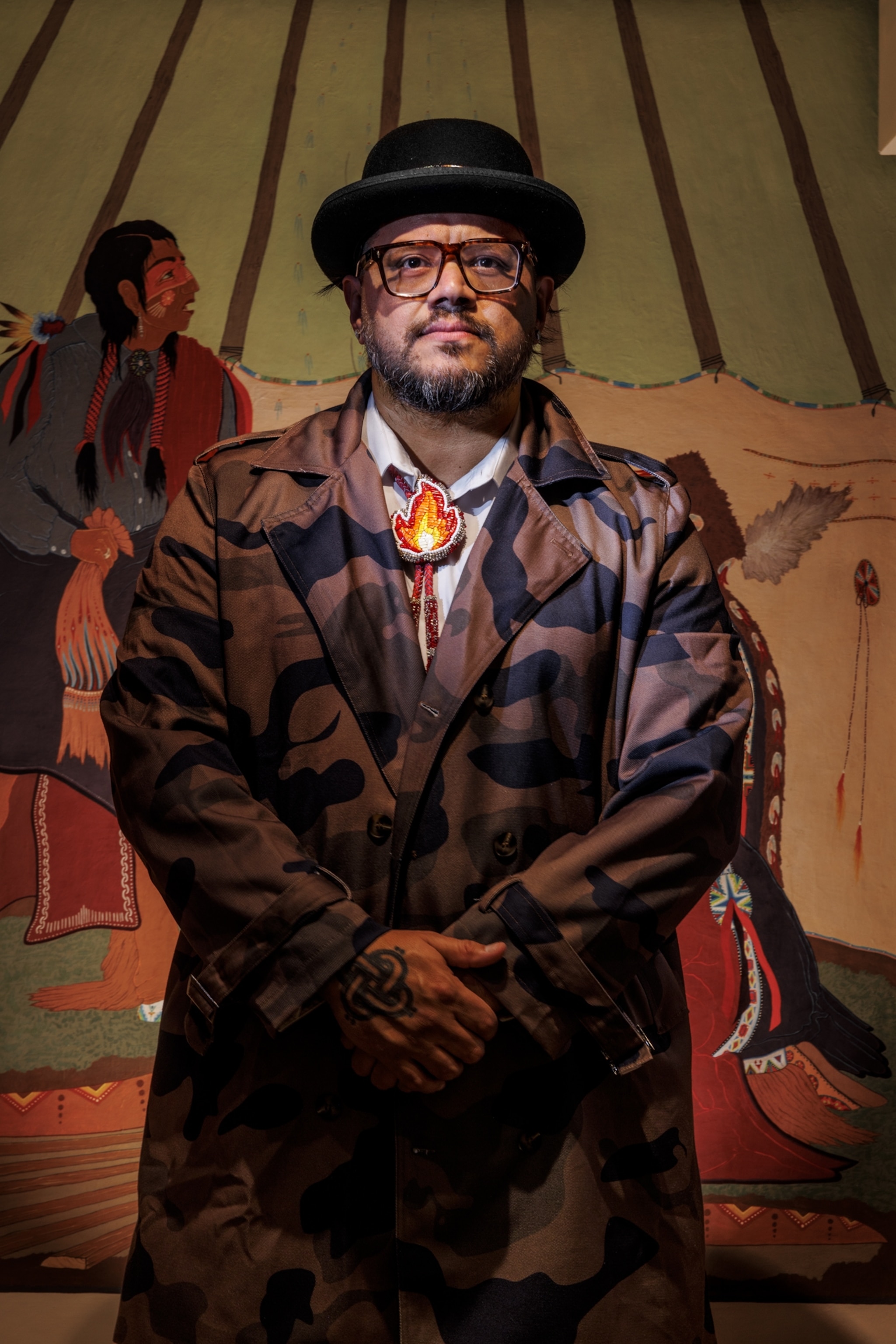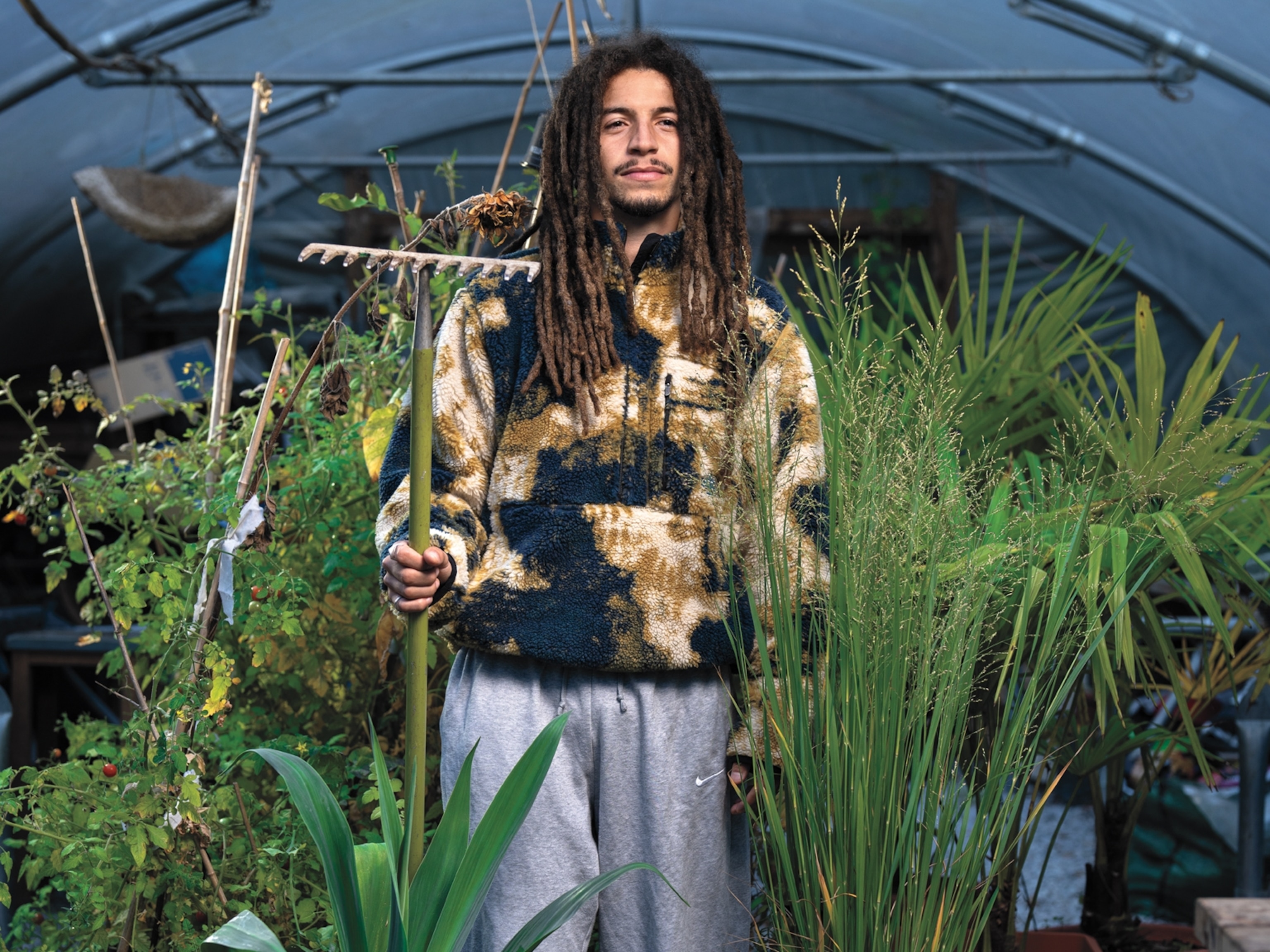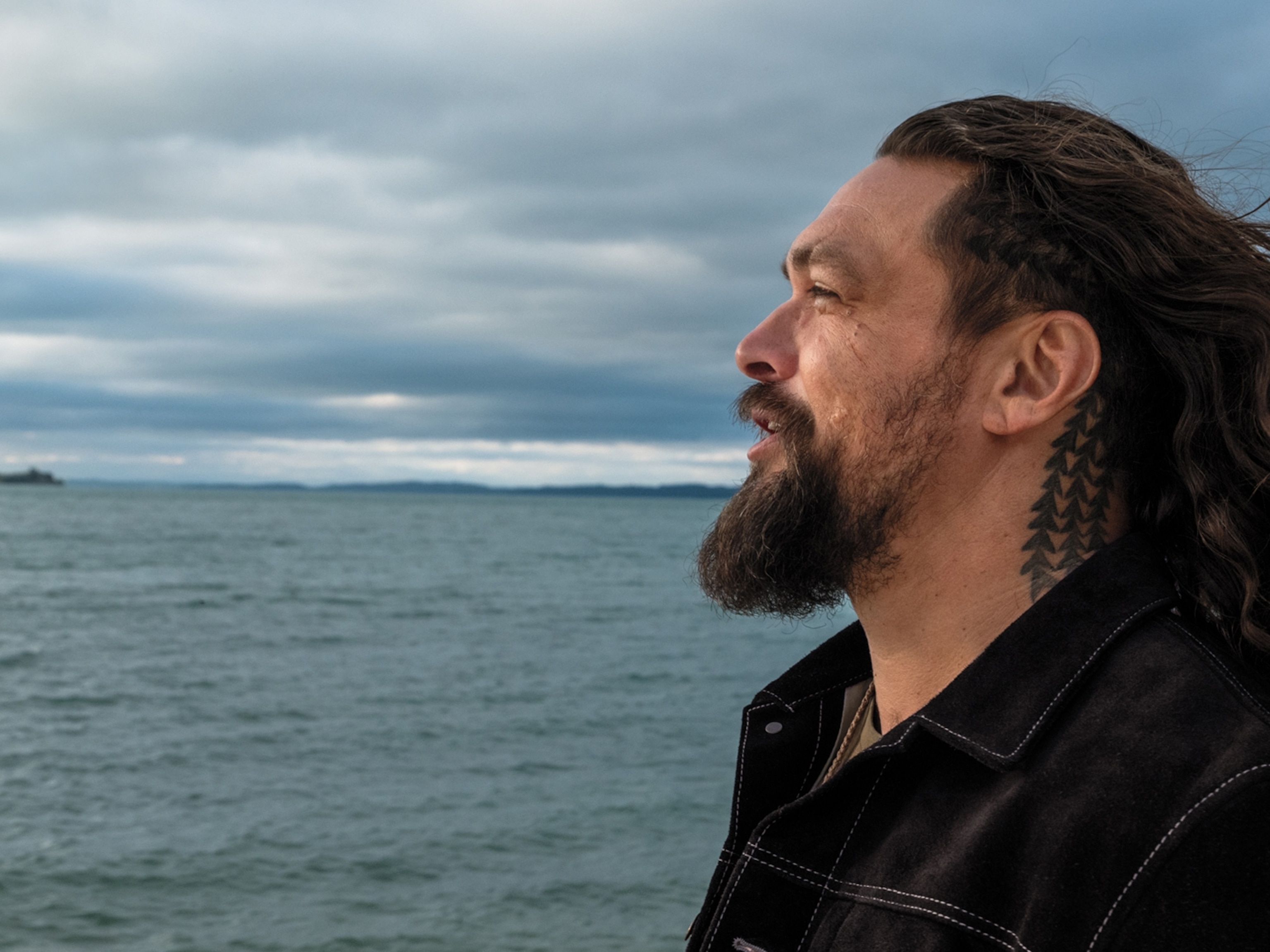How Sterlin Harjo found success with an unlikely formula
To TV viewers, the Indigenous-centering series Reservation Dogs was an overnight hit. To its cocreator, the show was the product of a life spent trying to carve out space to tell stories like his own.

After more than a decade of making films, Sterlin Harjo, whose work often focuses on Indigenous issues, was considering whether to leave the business. “My films were getting out at festivals and getting distribution, but not a lot of people saw them,” he says. “I was getting frustrated with the fact that I’d been working so hard at it and there just was not an easy way to make a living.”
Instead of hanging it up, Harjo (Muscogee, Seminole) joined forces with Taika Waititi (Māori) to launch a television series that not only thrust him into the spotlight but also brought others along with him. The series, Reservation Dogs (produced for FX, which shares a parent company with National Geographic), debuted in 2021 and revolved around teenagers on an Oklahoma reservation. “I took a gamble thinking the industry would change,” he says. “And it did.”
In a first for a network show, Reservation Dogs heavily featured Native talent both in front of and behind the camera. “Honestly, I think it was just me being naive that made that happen,” Harjo says. “I knew FX had an all-Black writers room with Atlanta, so I figured they would do a Native writers room for a Native show. They understood what I was doing and were so supportive.”
When the show premiered, Native audiences rejoiced. They saw themselves represented on-screen in a way they never had before. Wes Studi, the famed Cherokee actor and the only Native American actor ever to receive an Oscar, had a recurring role on Reservation Dogs and continues to see a ripple effect. “All of us who have been in the trenches for the past 40 years have been working toward this,” Studi says. “There’s this upsurge of interest in Native American stories, and there are more opportunities because of Sterlin and his work.”
The series defied all the problematic stereotypes perpetuated by pop culture of yore by showing Indigenous people as just that: people, with all their joys, traumas, and everyday ordeals. “It’s exciting because the mainstream audiences are interested in us, and we have an opportunity to tell our stories in a really authentic way and show how diverse our storytelling is. We’re the best storytellers on Earth, in my opinion,” Harjo says. That non-Native audiences also tuned in was a bonus for Harjo, who created the show for Indigenous viewers. Even with all the accolades, his own people remain his North Star. “My personal test for my work is: Can I hold my head high in my community?” he says. “My work and my life have always been tied together; to stay in my community requires that my work is truthful.” He recalls visiting the sorghum festival in Wewoka, Oklahoma, the home of the Seminole Nation of Oklahoma tribal headquarters. “People I’ve known my whole life came up to hug me and tell me they love my work,” he says. “Just being part of the community is my favorite thing.”
As a kid, Harjo spent hours at his maternal grandmother’s kitchen table, listening intently as relatives told family tales that toggled between fact and folklore. But he had no idea he’d be the one, perhaps more than any other filmmaker, who would usher in a new era of on-screen representation for Native communities across the country. “I never thought this was even possible,” he says. “I was obsessed with movies. But I didn’t know I could be a writer.” That changed when a professor at the University of Oklahoma praised an essay Harjo wrote for a remedial English class. It was a tale he learned at his grandmother’s kitchen table about a man she married who burned himself alive—a true story, Harjo insists. He realized, when the professor asked if she could read his essay to the class, he might be a storyteller after all.
Many of the actors and creatives from Reservation Dogs have since led other successful projects. These include Sydney Freeland’s Rez Ball, a film that Harjo cowrote about a Navajo high school basketball team attempting to make the New Mexico state championship, and Erica Tremblay’s Fancy Dance, a movie centered on the missing and murdered Indigenous women crisis, as depicted on the Seneca-Cayuga Nation in Oklahoma.
For Harjo, the ultimate reward is that his kids, now seven and eight years old, are growing up in a world with more authentic Indigenous representation. These days they’re the ones listening to older generations tell family lore around the kitchen table. And thanks to their dad, they can watch some of those stories on TV too.
Harjo, naturally, is onto his next project: a new crime noir show for FX called The Sensitive Kind toplined by Ethan Hawke, who had a stint as a guest star on Reservation Dogs. “Whether it’s a horror, a heist, a comedy, a love story—I just wanted to be part of proving that Native filmmakers can do all of it,” he says.






